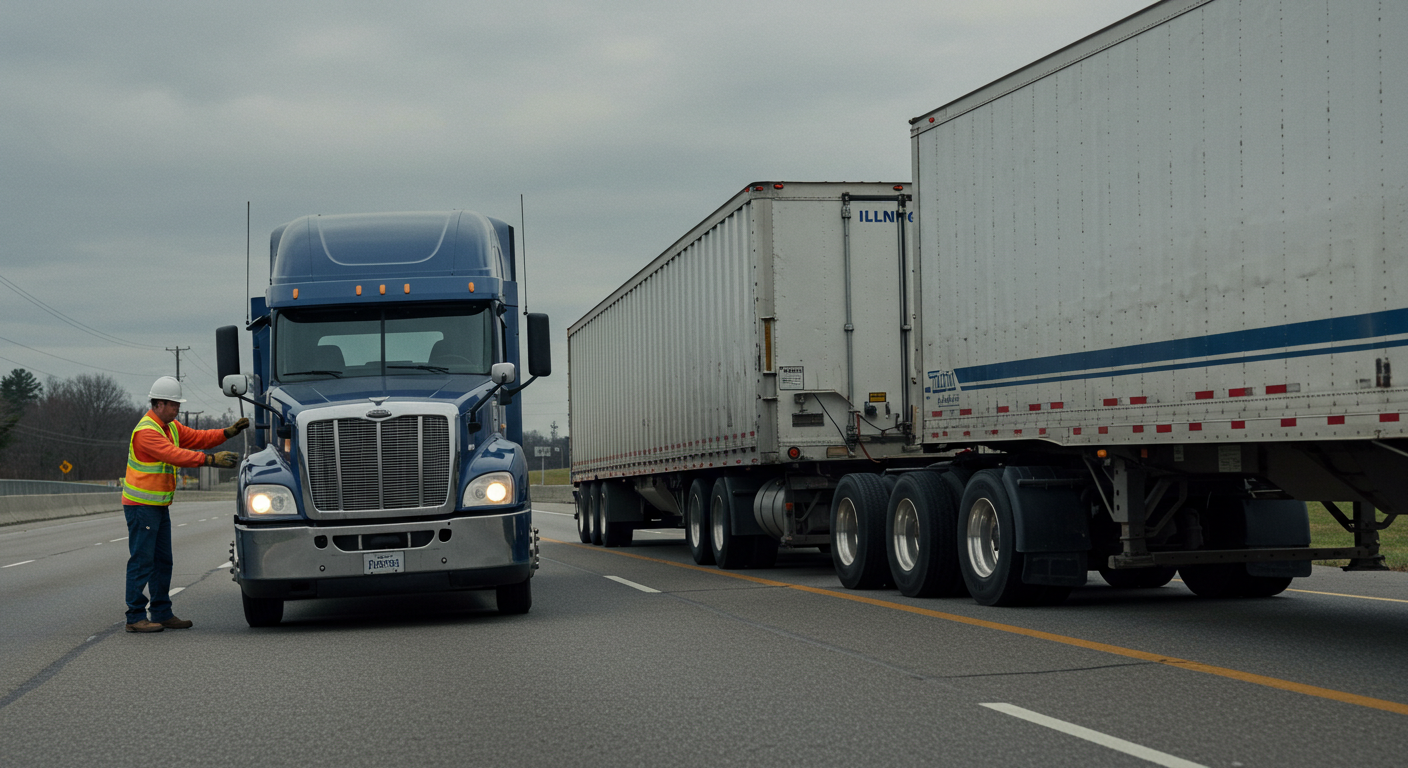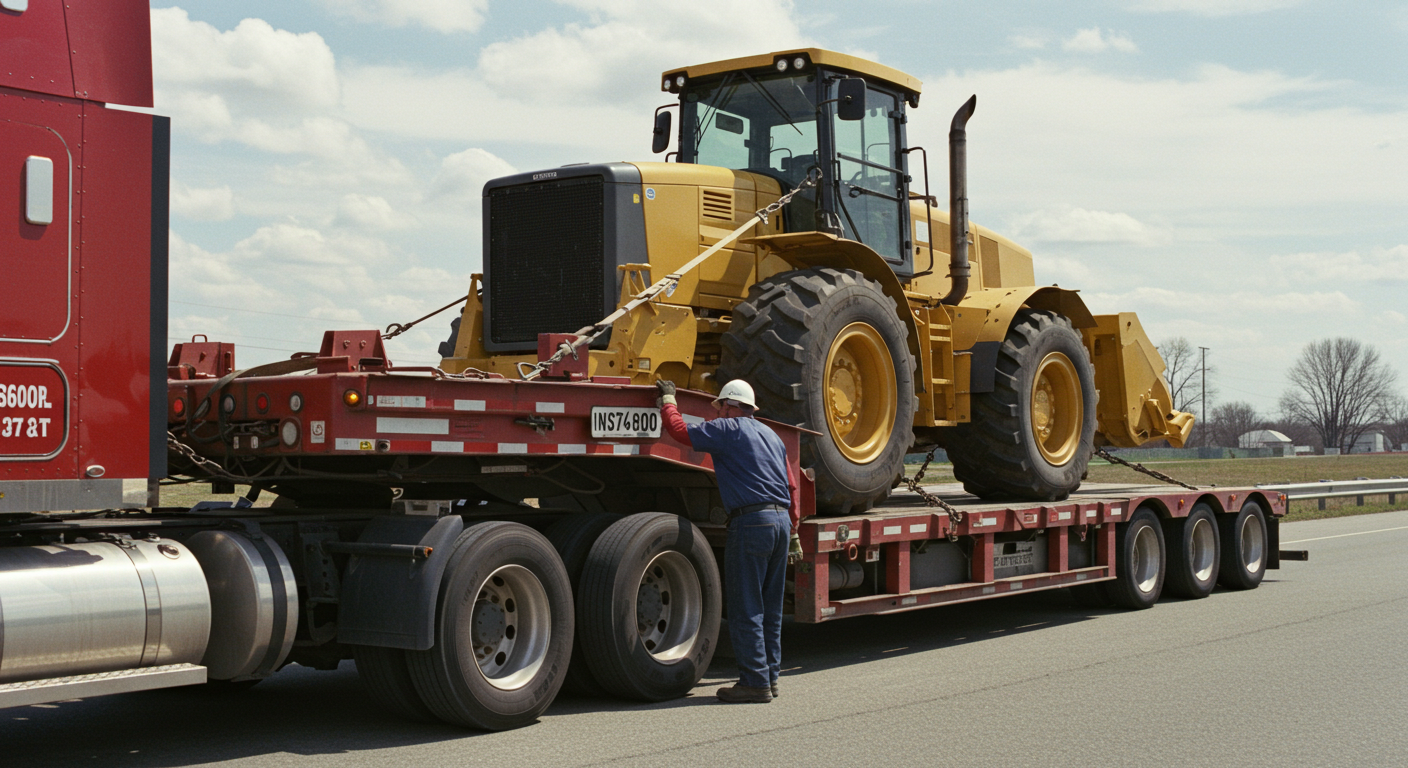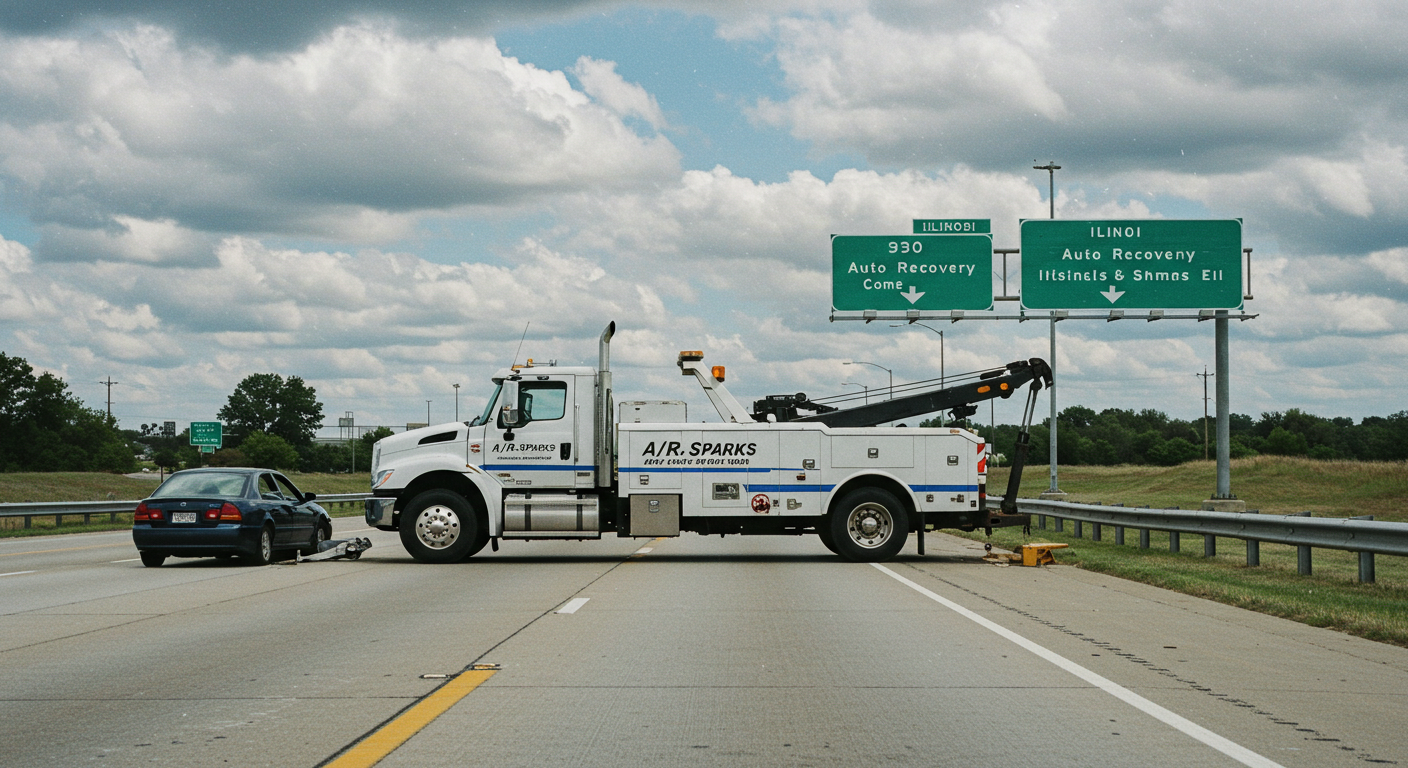When your vehicle breaks down or you experience an accident, your first priority should be ensuring your safety and the safety of others on the road. What to do while waiting for a tow truck is a crucial question in such situations. While waiting for roadside assistance, it’s crucial to remain calm and take appropriate steps to minimize risks. The situation can be stressful, but making the right decisions can keep you out of harm’s way. Whether you’re on a busy highway or a quiet street, being aware of your surroundings and taking preventive measures will help protect you from further dangers. Here are essential towing safety tips to follow that will help you stay safe and prepared.
Move to a Safe Location
If possible, pull over to a well-lit area or the shoulder of the road. Staying in the middle of traffic or a poorly visible location increases the risk of an accident. If your car is still operable, try to reach a parking lot, highway rest stop, or emergency lane. This not only keeps you safe but also prevents traffic congestion, reducing the risk of a secondary accident. If you cannot move your car, turn on your hazard lights and remain inside while assessing your options. Be cautious when exiting your vehicle, especially in high-traffic areas.
Turn On Your Hazard Lights
Your hazard lights (or emergency flashers) signal to other drivers that you’re experiencing an issue. This step is crucial, especially at night or in poor weather conditions, as it helps prevent collisions with passing vehicles. Flashing lights alert oncoming traffic to slow down, keeping both you and other drivers safer. If your vehicle has additional safety gear, such as reflective triangles or road flares, use them to further increase your visibility. Always be mindful of traffic flow and keep a safe distance when placing these items.
Stay Inside Your Vehicle if It’s Safe
If your car is in a safe location and there is no immediate danger, it’s often best to stay inside. Highway safety is a major concern, and standing outside on a busy road can put you at risk of injury from oncoming traffic. If you must exit, use the passenger side away from traffic. Staying inside your locked vehicle also helps prevent interactions with strangers who may not have the best intentions. Keep your seatbelt fastened in case another vehicle accidentally collides with yours.
Contact the Right Authorities
Call a Reputable Towing Service
Before you need assistance, it’s wise to have a trusted towing company’s number saved in your phone. In Chicago, look for a well-rated provider with 24/7 emergency towing services and experience handling different vehicle types. Not all towing companies provide the same level of service, so check reviews and ask about estimated arrival times. Confirm their credentials before agreeing to a tow, as scams and unauthorized operators can take advantage of stranded drivers.
Notify the Police If Necessary
If your car broke down due to an accident or it’s causing a hazard on the road, call the police. They can provide traffic control and ensure your vehicle safety while waiting for a tow. In cases where your vehicle is blocking traffic or posing a risk to other drivers, law enforcement may need to redirect traffic or help move your vehicle. Some insurance policies also require a police report in case of an accident, so it’s best to document the situation properly.
Inform Someone About Your Location
Always let a family member or friend know where you are, especially if you are in an unfamiliar or isolated location. This is an essential personal safety measure in case your phone battery dies or you need assistance beyond towing. Sharing your real-time location via smartphone apps like Google Maps or WhatsApp can help someone track your whereabouts. In case of an emergency, they can relay your location to authorities or roadside assistance services.
Preparing for the Tow Truck’s Arrival
Gather Important Information
Before the tow truck arrives, collect your vehicle details, insurance information, and the towing company’s name and number. This will ensure you have all the necessary documentation for insurance claims or repair service discussions. Keep a note of the estimated time of arrival and any service fees discussed beforehand. Taking a few photos of your car’s condition before it’s towed can help protect you in case of any damage disputes later.
Secure Your Valuables
Remove important documents, electronics, and personal items from your car. While reputable tow services operate professionally, it’s always a good habit to take your valuables with you. Items like your car registration, insurance papers, wallets, and mobile devices should never be left behind. This helps prevent potential theft or loss, as you might not have immediate access to your vehicle after it has been towed.
Understand Where Your Vehicle Will Be Taken
Confirm the tow destination and any associated costs before the driver departs. Some roadside services tow to a specific shop, while others may allow you to choose a repair facility. Ask about potential storage fees if your car will be held overnight. It’s also important to ask about any extra charges for towing beyond a certain distance. Knowing these details in advance prevents unexpected expenses.
Avoid Common Mistakes While Waiting
Don’t Accept Help from Strangers
While good Samaritans exist, it’s best to decline help from unfamiliar individuals. Instead, wait for your trusted towing service to arrive. Scams targeting stranded drivers are common, so always verify the towing company’s credentials. If someone insists on offering help, keep your doors locked and windows up while politely declining. Call your towing service or roadside assistance provider immediately to confirm their estimated arrival time.
Don’t Leave Your Car Unattended
Unless your safety is at risk, stay near your vehicle. Leaving it unattended can increase the risk of theft or unwanted towing fees if an unauthorized service takes your car. Additionally, if your car is in a high-traffic area, authorities might tow it to clear the road. If you need to step away, try to stay within sight of your vehicle at all times.
Don’t Attempt DIY Repairs on a Busy Road
Even if you have an auto emergency kit, fixing a car on a highway or in heavy traffic is dangerous. Leave it to professionals, especially if your breakdown involves electrical or mechanical issues. Attempting to change a tire or jumpstart your car in an unsafe area can put you at risk of injury. Always prioritize your safety over trying to make quick repairs yourself.
What to Do After Your Car Is Towed
Verify the Tow Truck Service
Ensure the tow truck company is legitimate by checking their name, logo, and contact details. If something feels off, call the number you initially contacted to confirm their identity. Scammers sometimes pose as tow truck drivers to charge exorbitant fees or take vehicles illegally.
Inspect Your Vehicle Upon Retrieval
When you retrieve your vehicle, check for any new damages or missing items. If anything appears wrong, document it with photos and report it to the towing company or your insurance provider. This can help you file a complaint or claim if necessary.
Follow Up on Repairs or Insurance Claims
After towing, ensure your car is properly repaired. Contact your insurance provider to understand your coverage for emergency tire service, towing costs, and auto repairs. Some policies include reimbursement for towing expenses, so keep all receipts.








